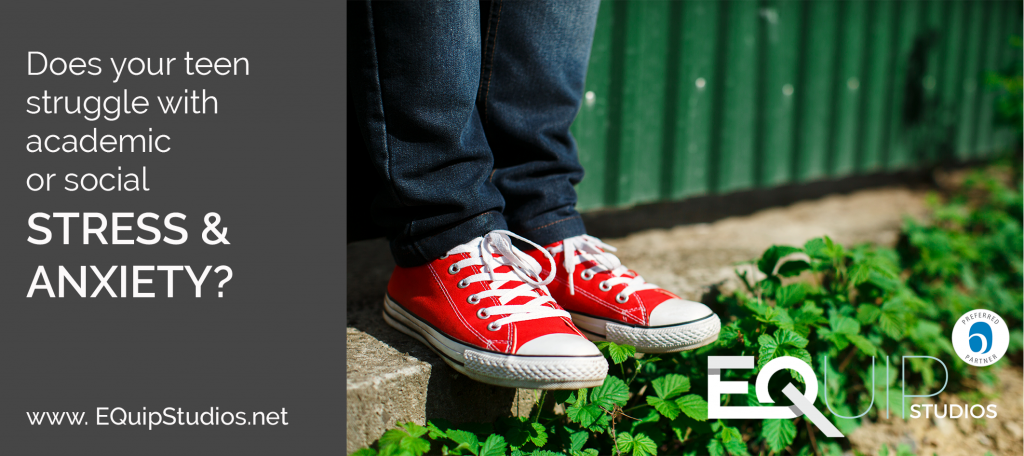Teen stress and anxiety is growing and continues to be on the rise. According to the American Psychological Association, teens (ages 13-17) are reporting greater levels of stress compared to adults (18+).
On a 10-point scale:
- Teens experience an average stress level of 5.8 during the school year
- Teens experience an average stress level of 4.6 during the summer
- Adults experience an average stress level of 5.1
In addition:
- 83% of teens indicated that school was a common source of stress
- 31% of teens indicated that their stress level was greater than the prior year.
- 54% of teens think their stress level has a slight to no impact on their body or physical health
- 52% of teens think their stress level has a slight to no impact on their mental health
- 59% of teens are uncertain about the effectiveness of their stress management techniques
“Almost a third of college students said they felt so depressed during the previous year that it was difficult to function, and more than half had experienced overwhelming anxiety. Almost 8 percent seriously considered suicide.” 2013 National College Health Assessment,
There is little hope of things getting better any time soon if teens lack awareness of the impact of stress and are uncertain how to navigate stress.
Something needs to change.
Preparing Students for College
As students enter into their first year of college, they are immediately face-to-face with the stress of separating from family and friends, a need to belong, choice of decisions and priorities, social and academic pressures, and possibly employment.
This stress can lead to poor decisions, unhealthy friend groups, isolation, excessive socializing, misguided priorities, focus on self over others, overwhelm, anxiety, and self-harm.
In the year 2016, there were approximately 20.5 million students attending college in the United States. College campuses are reporting record number of visits to campus counseling centers and longer wait times, both indicating a need to provide support to students struggling with social and emotional issues.
In order to break unhealthy stress levels with our teens entering college, we need to provide opportunities for students to learn how to become self-aware and navigate stress with proven skills and tools to live a healthy lifestyle.
Navigating Stress with Emotional Intelligence Training and Coaching
With emotional intelligence training and coaching, students can learn to navigate stress using the following strategies.
- Turn inward to recognize triggers that create stress
- Recognize patterns of behavior that lead to stress and anxiety
- Identify self-limiting thoughts, or false beliefs that create stress
- Recognize choices and options to create better balance and promote a healthy lifestyle
- Respond to stress with intentional actions that break the stress cycle
- Establish and maintain supportive networks and communities to increase dialogue and communication when feeling the symptoms of burnout
- Make effective decisions and choices
- Navigate challenges with confidence and optimistic thinking
- Successfully respond to social and academic pressures
- Align choices and decisions to what matters most
Summary
The focus of preparing teens for college must be expanded from academics to also include well-being.
Emotional Intelligence training and coaching can help teens turn things around so that they will be able to engage in healthy and supportive relationships, navigate social and emotional stress and anxiety, and align their focus, decisions, and choices with what matters most.

About Kelli Porcaro, PCC, EQAP, EQCC
Kelli brings 25+ years of Organizational Development experience to her work as a Consultant and Coach. She works in a wide range of industries unlocking infinite possibility with leadership development, instructional design, change management, and emotional intelligence.
Kelli also serves on Faculty at the Lake Forest Graduate School Management.


